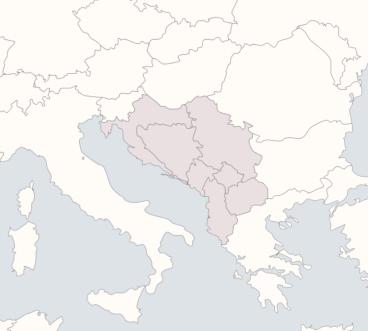Bosnia and Herzegovina

Bipartisan Helsinki Commission Leadership Respond to...
Apr 03, 2025WASHINGTON—Today, the leadership of the U.S. Helsinki Commission, Chairman Senator Roger Wicker (MS), Co-Chairman Representative Joe Wilson (SC-02), Ranking Member Senator Sheldon Whitehouse (RI), and Ranking Member Representative Steve Cohen […]

Cardin, Shaheen, Wicker Introduce New Bipartisan Bil...
Aug 04, 2022WASHINGTON – Helsinki Commission Chairman Ben Cardin (MD) with Jeanne Shaheen (D-N.H.), Chair of the Senate Foreign Relations Subcommittee on Europe and Regional Security Cooperation and member of the Helsinki […]
Helsinki Commission Deeply Concerned Over Latest Ele...
Jul 27, 2022WASHINGTON—Helsinki Commission Chairman Sen. Ben Cardin (MD) and Co-Chairman Rep. Steve Cohen (TN-09) today expressed deep concern about an effort by the international community’s High Representative in Bosnia to impose […]
Sweden’s Leadership of the OSCE
Jun 11, 2021In 2021, Sweden chairs the world’s largest regional security organization—the Organization for Security and Cooperation in Europe (OSCE)—which comprises 57 participating States stretching from North America, across Europe, and to […]
Swedish Foreign Minister Ann Linde to Appear at Hels...
Jun 03, 2021WASHINGTON—The Commission on Security and Cooperation in Europe, also known as the Helsinki Commission, today announced the following online hearing: SWEDEN’S LEADERSHIP OF THE OSCE Priorities for 2021 Friday, June […]

Helsinki Commission Commemorates 45 Years of Advanci...
Jun 03, 2021WASHINGTON—To commemorate the 45th anniversary of the Commission on Security and Cooperation in Europe, also known as the U.S. Helsinki Commission, on June 3, Chairman Sen. Ben Cardin (MD) and […]

Albanian Prime Minister Edi Rama to Appear at Helsin...
Sep 09, 2020WASHINGTON—The Commission on Security and Cooperation in Europe, also known as the Helsinki Commission, today announced the following online hearing: ALBANIA’S CHAIRMANSHIP OF THE OSCE Responding to the Multiple Challenges […]
Hastings and Wicker Commemorate 25th Anniversary of ...
Jul 10, 2020WASHINGTON—Ahead of the 25th anniversary of the genocide at Srebrenica in Bosnia and Herzegovina on Saturday, July 11, Helsinki Commission Chairman Rep. Alcee L. Hastings (FL-20) and Co-Chairman Sen. Roger […]
It’s All About the Money
Dec 03, 2019As the countries of the Western Balkans continue to seek the integration that promises stability and prosperity, the inability to genuinely confront and overcome official corruption through good governance measures […]

Corruption in the Western Balkans Focus of Upcoming ...
Nov 22, 2019WASHINGTON—The Commission on Security and Cooperation in Europe, also known as the Helsinki Commission, today announced the following briefing: IT’S ALL ABOUT THE MONEY Corruption as a Brake on Balkan […]

2019 Human Dimension Implementation Meeting
Sep 13, 2019From September 16 to September 27, OSCE participating States will meet in Warsaw, Poland, for the 2019 Human Dimension Implementation Meeting (HDIM), organized by the OSCE Office for Democratic Institutions […]
